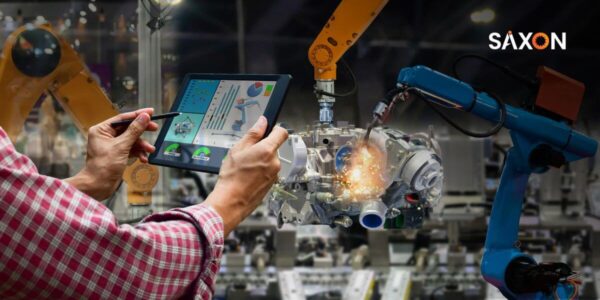There is a tremendous buzz around Generative AI. And why not? After all, Gen AI is transforming the way businesses strategize and adopt innovation. Today’s business landscape is highly competitive, and organizations are constantly looking for innovative solutions that can enhance operational effectiveness and propel growth in the right way. At the same time, modern tech solutions are growing and evolving at a breakneck speed. In just a few years, many applications, hardware, and software acquired the ‘legacy’ status and are outdated now. They are being replaced by advanced cutting-edge solutions such as the cloud, machine learning, artificial intelligence, etc. The new cutting-edge technologies are not only impressive but also promise game-changing capabilities, reducing costs and augmenting services. Solutions such as low-code and no-code development, applied AI and Machine Learning, cloud computing, and much more are changing how businesses work compared to how it was even a few years ago. Leveraging the latest tech, when appropriately harnessed, can revolutionize businesses with their advanced capabilities and provide a distinct competitive advantage.
Understanding Generative AI
The latest technology marvel entering the arena of cutting-edge technology is Generative AI. It has diverse applications across industries and in the realm of AI. Incorporating generative AI in work can reshape business strategies. How? By harnessing Generative AI, organizations can optimize business processes, uncover untapped opportunities, and unlock new levels of creativity. Let us see how Gen AI can drive growth and revolutionize business strategies via AI, apps, automation, and analytics.
As we know, Generative AI, a subset of Artificial Intelligence, can generate content. Though it was introduced in the 1960s via chatbots, the recent development of generative adversarial networks or GANs, a type of ML algorithm, transformers -another type of ML and large language models (LLMs) have resulted in the breakthrough of truly advanced Generative AI capabilities. Gen AI can produce a variety of content, including text, images, videos, audio, and synthetic data. The best part is the simplicity of the user interface, which makes it genuinely democratic.
Gen AI in app development
Modern enterprise apps include AI and ML capabilities, which make business processes much more efficient while enhancing customer experience, augmenting your workforce, automating business processes effectively, and thus driving business growth. Moreover, these applications are also scalable and ensure a good ROI. But again, the demand for app development has been skyrocketing in business, resulting in overwhelming IT teams. Low-code platforms have risen to the occasion and have democratized app development for business teams. However, the rise of generative AI is revolutionary, as creating applications with simple natural language interactions is now possible.
Generative AI uses advanced machine learning algorithms to autonomously generate code autonomously, resulting in streamlining the software development process. It has the potential to simplify the transition from low-code development to no-code. With the pre-built models and code templates, generative AI enables developers to build complex applications without extensive coding expertise. Microsoft Power Apps has seamlessly integrated generative AI capabilities with Copilot. This integration features a chat interface that allows the user to create simple applications through natural language interaction.
Github Copilot, the generative AI from Microsoft specializing in software engineering, plays a crucial role in this app development landscape. It accelerates the time-consuming and mundane tasks such as constructing function templates or filling variables; Copilot can also anticipate the developers’ intentions and complete their coding attempts. Also, being trained on LLMs, Copilot can generate error-handling code and detect unique code patterns.
Generative AI in analytics
If data is the new oil, then data analytics is the key to unlocking the ‘new oil’ power. From deciphering trends, finding hidden patterns, and uncovering insights, data analytics give valuable insights to make better decisions. It is one of the most valuable assets because of its sheer potential to propel innovation and give a business a competitive advantage. Let us understand how generative AI can transform data analytics.
Data preparation
Data preparation consumes a significant amount of a data scientist’s time, impacting job satisfaction. Gen AI can significantly streamline this process by automating data wrangling tasks, enhancing the data quality and freeing up valuable time.
Data transformation
Data can exist in various formats- which may be broadly categorized into- structured and unstructured data. Integrating both structured and non-structured data is a challenge for enterprises. Generative AI can facilitate seamless data transformation across these two formats. Thus, organizations can harness Gen AI to address this challenge by enabling smooth data transformation between these formats. This ensures that the data can be efficiently analyzed, regardless of its initial structure.
Data analysis
The power of data analysis is to get the answers to questions by harnessing the available data. The questions are essential, as they require business acumen and domain knowledge. However, having biased notions and the inability to view the data from a fresh perspective are common problems. Similarly, coding is also another challenge in data analytics. Data scientists spend considerable time building prediction models, workflows, and algorithms. Generative AI overcomes both hurdles by swiftly generating code and asking questions without bias and with fresh perspectives.
Extracting insights
Generative AI overcomes challenges of complex data patterns, scalability constraints, contextual limitations, communication of insights, and more, and extracts insights with greater accuracy and depth from the data. Its intrinsic ability to uncover nuanced trends in the data is also beneficial.
Reporting
Gen AI can automate the report generation process and effortlessly convert data into understandable text. Furthermore, it can customize, add strategic alignment, and ensure consistency and compliance, as well as cater to the varied stakeholders with tailored reporting. Gen AI’s storytelling capabilities and real-time reporting also enhance the impact of the insights.
Gen AI is reshaping the data analytics landscape at every stage of the analytics value chain. One such transformational application in the realm of data and analytics is Azure Open AI. The dynamic duo of having robust data and analytics capabilities with the cutting-edge generative AI capabilities of OpenAI allows enterprises to have innovative data processing and in-depth insights. Thus, it can empower an organization with data-driven insights and better decision-making.
Gen AI in Business Process Automation
Generative AI also holds immense potential in the domain of Business Process Automation. From streamlining processes to automating tasks and fostering innovation, integrating Gen AI in BPM platforms can unlock a multitude of benefits and pave the way for innovation. With the Gen AI capabilities, Business Process Management (BPM) platforms can improve decision-making, boost efficiency, and help the enterprise gain a competitive edge.
1. Process Optimization: Generative AI can analyze historical data, identify patterns, and detect inefficiencies in processes. Integrating it into BPM platforms can result in finding out valuable insights and recommendations, as well as optimizing resource allocation and overall efficiency.
2. Task Automation and Efficiency Gains: Generative AI can automate repetitive or mundane tasks within BPM by training AI models on the existing data. BPM platforms can also leverage generative capabilities to automate intelligent decision-making processes, improving task execution with increased accuracy and speed.
3. Innovating through Generative AI in BPM: Generative AI fuels innovation by generating new ideas, concepts, or designs within BPM. BPM platforms can use generative models to explore alternative approaches, generate diverse options, and foster innovative solutions. This facilitates improved customer experiences, new product development, and competitive differentiation.
4. Enhancing Human-Machine Collaboration: Generative AI promotes effective collaboration between humans and machines within BPM. Human experts guide the AI system, provide feedback, and ensure generative outputs align with organizational objectives and domain expertise.
There are many more use cases of Gen AI in Business Process Automation ranging from tailored customer experience, fraud detection, generating reports or documentation, detecting anomalies and, keeping quality control, and much more.
Drive your business growth with Saxon
At Saxon, we, not only help enterprises drive business growth with rapid app development, intelligent process automation, and advanced analytics, we also offer cutting-edge Generative AI solutions that transform and optimize for maximum efficiency. You can jumpstart your business productivity with our expert-guided Gen AI jump starter options. There are several options to choose from, depending on your business needs.
















